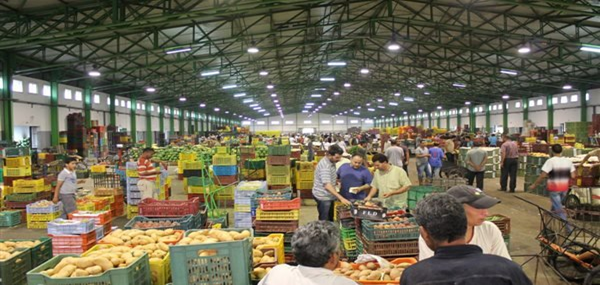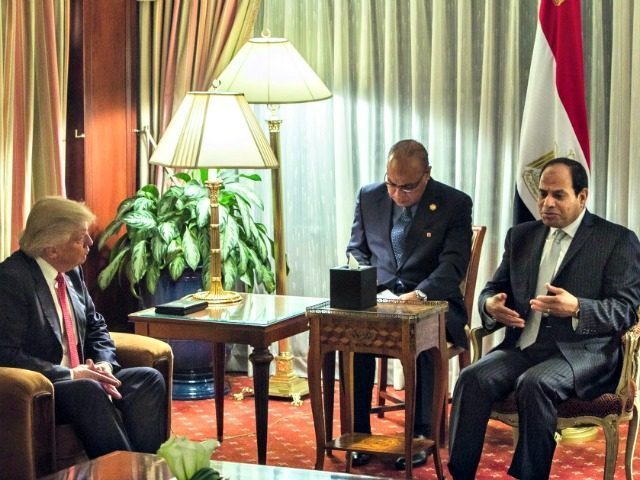
The miserable conditions of the Egyptian economy has been highlighted by a recent S&P Global, indicating the worst slump of the country’s non-oil private sector PMI
Egypt’s Purchasing Managers’ Index (PMI) for the non-oil private sector — released by the American credit rating agency Standard and Poor’s (S&P) — started to inch down in June after its slight climb in May, registering 45.2, down from 47.
Egypt’s non-oil private sector economy had its worst performance in two years as demand slumped after a sharp spike in prices and the pound’s devaluation while businesses struggled to secure the necessary supplies of raw materials.
Input costs soared at the fastest pace for almost four years, prompting companies to raise their selling charges the most since February 2017, according to a survey published Wednesday by S&P Global.
S&P Global’s Purchasing Managers’ Index for Egypt dropped to 45.2 last month from 47 in May, remaining below the 50 mark that separates growth from contraction for the 19th straight month.
Egypt’s non-oil private sector activity deteriorated at the fastest pace in two years in June, survey data from S&P Global also showed.
IHS Markit’s Purchasing Managers’ Index (PMI) climbed to 49.9, up from 48.6 in May and just below the 50.0 threshold that separates growth from contraction.
“Egyptian companies suffered from a sharp downturn in new business in June, leading to the strongest deterioration in economic conditions since Covid-19 measures were introduced,” said David Owen, economist at S&P Global Market Intelligence.
“The sharp drop-off in demand came from rising inflation and tightening monetary policy.”
“Firms often noted a rise in tourist numbers as foreign travel opened up, as well as an improvement in export orders,” IHS Markit said.
The latest reading was the lowest since June 2020, during the first wave of the Covid-19 pandemic.
Output and new orders decreased to the lowest since the second quarter of 2020.
Input costs rose in June and the devaluation of pound against US dollar led to higher import fees. Staffing costs increased at the fastest pace for eight months.
Output charges increased at the fastest rate since February 2017, with the monthly inflation rising to the largest seen since April 2011.
Input buying declined at the sharpest pace since April 2020 and staffing capacity lowered at a softer rate recorded since March.
Suppliers’ lead time lengthened to the greatest extent since February 2017 and backlogs of work grew for the first time in six months.
The non-oil private sector as a whole began contracting in December, ending a three-month expansion, as a resurgence in coronavirus cases dampened demand.
Inflation in input costs continued to accelerate in June, with the input prices subindex rising to a nearly two-year high of 55.9, compared to 55.2 in May.
“Commodity prices, particularly metals and plastics, drove a steep increase in purchasing costs,” said IHS Markit economist David Owen.
Firms again chose to absorb increasing cost burdens rather than passing them on to customers, as the increase in output prices slowed to a three-month low of 51.0.
Employment continued to fall, but at the softest rate since March, up to 48.7 from 48.3 in May. Many firms chose not to replace voluntary leavers, though this was partly offset by an uptick in hires due to rising demand.
“It was the Employment Index that held back the headline figure as job numbers continued to fall overall,” Owen said.
Higher borrowing costs and deepening price pressures are leaving Egyptian businesses exposed to an extended downturn.
The central bank allowed the pound to weaken sharply in March and raised interest rates as the economy came under pressure from a surge in food and fuel prices.
S&P said respondents experienced higher import fees as a result of the currency’s devaluation, adding to such “root drivers” of inflation as supply constraints and transport expenses. The monthly increase in prices was the largest since the survey began in April 2011, it said.
“June PMI data shows that hawkish monetary policy in the US and a rising dollar value is likely to keep supply side inflation running high,” said Owen.
“Supply conditions also remained weak and added to inflationary pressures, as firms signalled that raw material supplies were becoming increasingly difficult to secure.”
Around 45% of surveyed companies saw their expenses rise since May; wages grew at the fastest for eight months.



